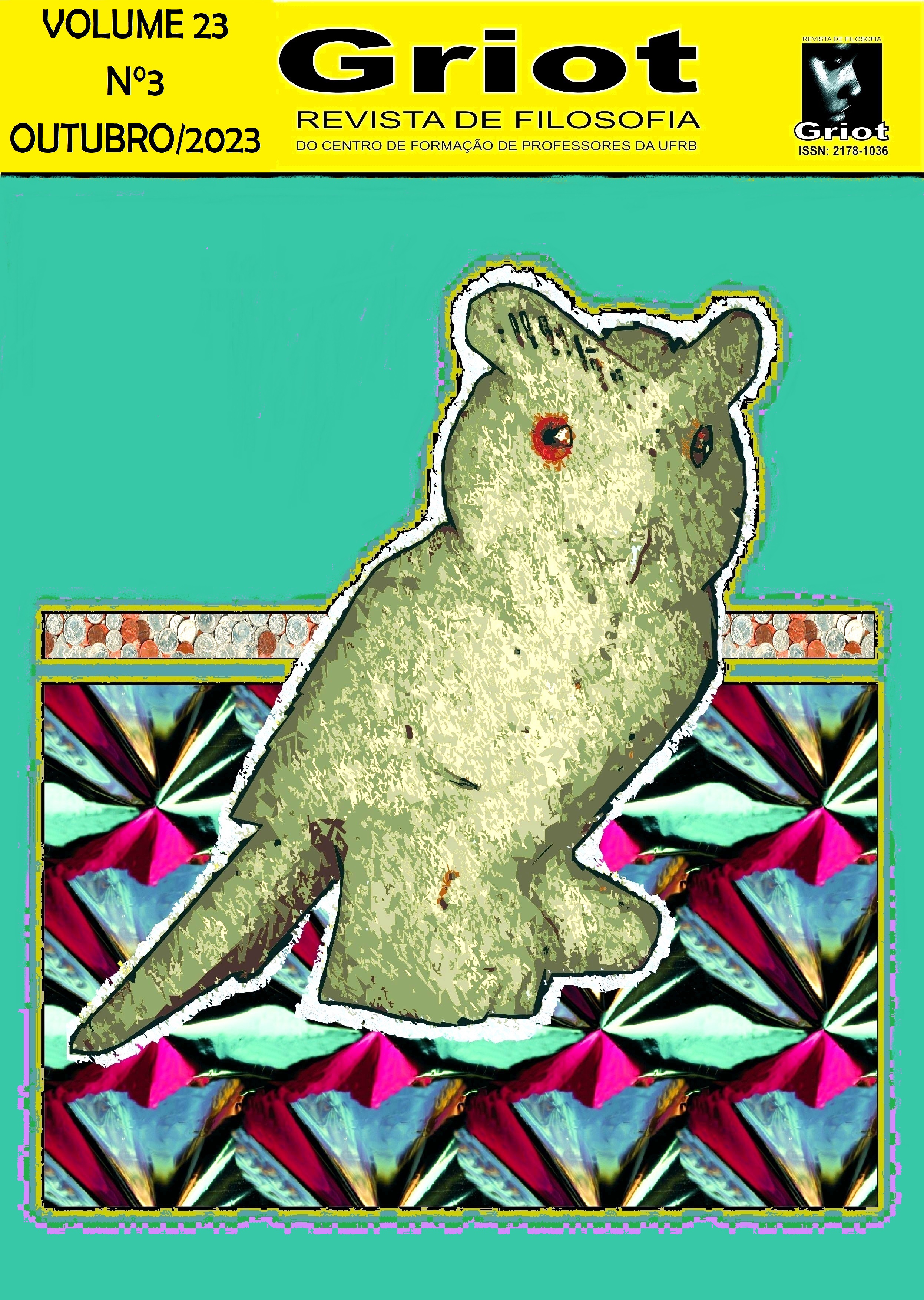Entre Foucault e Brown: a escrita da história e o papel do intelectual na análise dos processos de subjetivação neoliberais
DOI:
https://doi.org/10.31977/grirfi.v23i3.3490Palabras clave:
Michel Foucault; Wendy Brown; Humanismo; Neoliberalismo; Processos de subjetivação; Papel do intelectual.Resumen
O artigo propõe uma comparação entre as pesquisas de Michel Foucault e de Wendy Brown a partir das críticas e das complementariedades propostas pela pensadora norte-americana derivadas de sua leitura de Nascimento da biopolítica. Inicialmente, a explicação sobre o modo como Foucault escreve suas pesquisas históricas no contexto da sua crítica ao humanismo tem a função de auxiliar a compreensão das diferenças nos papeis intelectuais adotados. A recusa da história dialética aparece ligada, então, às críticas a figura do intelectual universal supostamente capaz de revelar um destino antropológico. É, justamente, no desenvolvimento de um modo arqueológico e genealógico de fazer história que a análise de processos de subjetivação ganha sentido para Foucault. Assim, a interpretação crítica de Brown é contextualizada em relação a metodologia foucaultiana. Além da leitura de Brown da análise foucaultiana dos processos de subjetivação neoliberais, no desenvolvimento do artigo, são analisados os argumentos próprios da autora sobre os impactos da racionalidade neoliberal nas forças políticas do presente. Por fim, busca-se apontar os ganhos e os perigos das duas perspectivas em relação ao papel intelectual que sustentam.
Descargas
Citas
BROWN, W. Nas ruínas do neoliberalismo: a ascensão da política antidemocrática no ocidente. São Paulo: Editoria Filosófica Politéia, 2019.
BROWN, W. Nihilistic times: thinking with Max Weber. Cambridge, Massachusetts: The Belknap Press of Harvard University Press, 2023.
BROWN, W. Undoing the demos: neoliberalism’s stealth revolution. New York: Zone Books, 2015.
ERIBON, D. Michel Foucault e seus contemporâneos. Jorge Zahar, 1996.
FOUCAULT, M. Aulas sobre a vontade de saber: curso no Collège de France (1970-1971). São Paulo: WMF Martins Fontes, 2014.
FOUCAULT, M. Dits et écrits, vol. III (1976-1979). Paris: Éditions Gallimard, 1994.
FOUCAULT, M. L'arquéologie du savoir. Paris: Éditions Gallimard, 1969.
FOUCAULT, M. Les mots et les choses: une archéologie des sciences humaines. Paris: Gallimard, 1966.
FOUCAULT, M. Nascimento da biopolítica: curso dado no Collège de France (1978-1979). São Paulo: Martins Fontes, 2008.
HEGEL, G. W. F. A Razão na História. São Paulo: Centauro, 2001.
MARX, K. “1. ad Feuerbach (1845)”. In: MARX, K; ENGELS, F. A ideologia alemã: crítica da mais recente filosofia alemã em seus representantes Feuerbach, B. Bauer e Stirner, e do socialismo alemão em seus diferentes profetas (1845-1846). São Paulo: Boi-tempo, 2007.
KANT, I. Idéia de uma história universal de um ponto de vista cosmopolita. São Paulo: Brasiliense, 1986.
Descargas
Publicado
Cómo citar
Número
Sección
Licencia
Derechos de autor 2023 Thiago Fortes Ribas

Esta obra está bajo una licencia internacional Creative Commons Atribución 4.0.
Los autores que publican en Griot: Revista de Filosofía mantienen los derechos de autor y conceden a la revista el derecho de primera publicación, con el trabajo simultáneamente licenciado bajo la Creative Commons Attribution 4.0 International License, permitiendo compartir y adaptación, incluso con fines comerciales, con el debido reconocimiento de la autoría y publicación inicial en esta revista. Lea mas...









































































